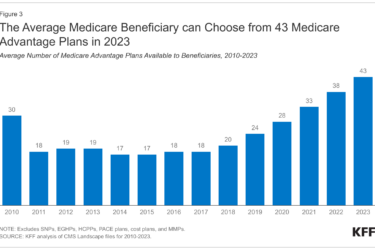In the Chicago Tribune, Deborah Shelton examines how unprepared Americans are to pay for their own long-term care needs as they age. Long-term care tends to slip under the radar because, as one of Shelton’s sources told her, “People buy insurance for their life because they know they are going to die, for their car because they know that can get in an accident and for their health because they know they can get sick, but people don’t tend to buy insurance because they think they are going to need someone to help them take a bath.”
 Long-term care encompasses everything from nursing home fees to in-home assistance with everyday routines. It all comes with a price tag; Medicare only covers a limited amount and Medicaid programs apply only to those below certain economic thresholds. That leaves the middle class, who can’t afford the services but don’t really qualify for Medicaid, in the lurch, Shelton writes.
Long-term care encompasses everything from nursing home fees to in-home assistance with everyday routines. It all comes with a price tag; Medicare only covers a limited amount and Medicaid programs apply only to those below certain economic thresholds. That leaves the middle class, who can’t afford the services but don’t really qualify for Medicaid, in the lurch, Shelton writes.
Most people assume Medicare will pay the bills, but the program covers long-term care only under certain conditions and for a limited time. While Medicaid covers long-term care, beneficiaries have to be poor or willing to “spend down” their assets to be eligible. Private insurance can be expensive and excludes applicants with serious medical problems.
As a result, many families pay out of pocket until they exhaust their resources and then turn to Medicaid.
The Affordable Care Act attempted to fill in the blanks, but long-term care provisions of that reform plan withered under intense cost pressure.
An initiative that would have incorporated long-term care into the Obama administration’s Health Policy plan was scrapped in October after actuaries determined that it would not be financially self-sustainable over the long haul. The Community Living Assistance Services and Supports Act would have created a voluntary, self-funded, employer-based insurance option to help people save for long-term care.









